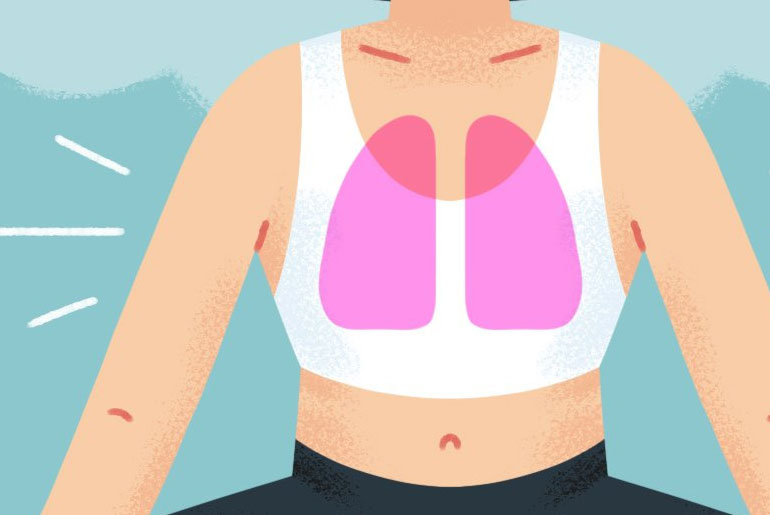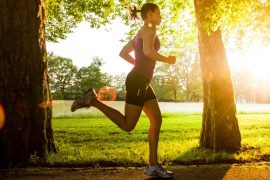Yoga is celebrated by experts for its comprehensive approach to enhancing lung capacity and managing respiratory conditions through a blend of breathing techniques, strengthening exercises, stress reduction practices, and mindful movement. This holistic combination not only strengthens respiratory muscles but also improves the efficiency of breathing patterns, aiding in better oxygen exchange and overall lung function.
By incorporating yoga into a regular routine, individuals can experience reduced symptoms of respiratory ailments such as asthma or chronic obstructive pulmonary disease (COPD), while also benefiting from enhanced physical and mental well-being. The practice’s focus on relaxation and mindfulness further contributes to stress reduction, which can indirectly support respiratory health by minimizing triggers and promoting a balanced lifestyle.
Yoga offers a holistic approach to improving respiratory health through various mechanisms:
- Breathing Techniques (Pranayama): Pranayama techniques like deep breathing and alternate nostril breathing enhance lung function by expanding lung capacity and increasing oxygen intake. These techniques improve respiratory efficiency and can benefit individuals with conditions like asthma or COPD.
- Strengthening Respiratory Muscles: Yoga poses such as Cobra Pose, Bridge Pose, and Fish Pose engage and strengthen the muscles involved in breathing, such as the diaphragm and intercostal muscles. Stronger respiratory muscles support better lung capacity and efficiency.
- Improving Posture: Proper posture is crucial for optimal lung function. Yoga helps correct posture imbalances through poses like Mountain Pose and Warrior Pose, promoting spinal alignment and allowing for better lung expansion and airflow.
- Reducing Stress: Chronic stress negatively impacts respiratory health. Yoga’s focus on relaxation, mindfulness, and stress reduction techniques like meditation and deep breathing can alleviate stress, enhance mental well-being, and improve overall respiratory function.
- Enhancing Lung Flexibility: Yoga poses that involve stretching and expanding the chest and ribcage, such as Camel Pose, Bow Pose, and Cow Pose, improve lung flexibility and capacity. These poses encourage deep inhalation and full expansion of the lungs.
- Increasing Oxygen Circulation: Yoga practices that emphasize controlled breathing and mindful movement enhance oxygen circulation throughout the body. Improved oxygenation supports respiratory health, boosts energy levels, and reduces symptoms of respiratory conditions.
- Promoting Relaxation Response: Yoga stimulates the parasympathetic nervous system, triggering the body’s relaxation response. This response can alleviate symptoms associated with respiratory conditions like wheezing and shortness of breath.
- Boosting Immune Function: Regular yoga practice strengthens the immune system, reducing the risk of respiratory infections and illnesses. A stronger immune system helps prevent exacerbations of respiratory conditions and supports faster recovery.
- Improving Lung Efficiency: Through mindful breathing techniques, yoga optimizes lung function by improving respiratory rate, tidal volume, and overall lung ventilation. This leads to better oxygen exchange and carbon dioxide elimination.
- Supporting Lifestyle Modifications: Integrating yoga into a comprehensive treatment plan for respiratory conditions complements other lifestyle changes such as smoking cessation, maintaining a healthy weight, and avoiding environmental triggers. Yoga supports overall respiratory health and enhances the effectiveness of other therapeutic interventions.
In conclusion, yoga’s multifaceted approach makes it a valuable tool for improving respiratory health by enhancing lung function, reducing stress, promoting relaxation, and supporting overall well-being. It can be beneficial for individuals seeking to manage respiratory conditions or maintain optimal lung health.
Disclaimer:
The information contained in this article is for educational and informational purposes only and is not intended as a health advice. We would ask you to consult a qualified professional or medical expert to gain additional knowledge before you choose to consume any product or perform any exercise.







